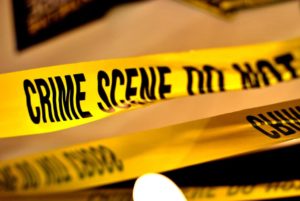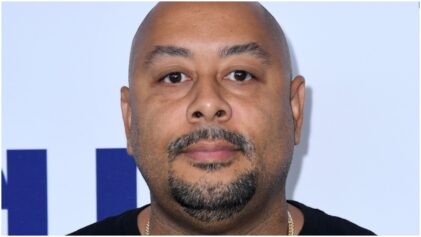
Jeff Sessions (Source: Flickr by ryanjreilly)
The Republican war on science has come to the U.S. Department of Justice, with the decision by Attorney General Jeff Sessions to eliminate the National Commission on Forensic Sciences (NCFS). The commission was started by President Obama in 2013 in partnership with the National Institute of Standards and Technology (NIST) at the U.S. Department of Commerce to enhance the practice and improve the reliability of forensic science. The commission includes forensic science service providers on the federal, state and local level, research scientists and academics, law enforcement, judges, prosecutors, defense attorneys and other stakeholders, according to its website.
The purpose of the NCFS is to ensure the reliability of forensic science, so that innocent people are not sent to prison or put to death for crimes they did not commit. Hundreds, but more likely thousands, of innocent people have been condemned due to junk science and unsound forensic evidence and techniques. The importance of this Obama-era initiative was underscored when in 2015, the FBI conducted a review of 3,000 cases involving microscopic hair samples and discovered that its analysts provided erroneous testimony 96 percent of the time.
The U.S. Department of Justice, the FBI, the Innocence Project, and the National Association of Criminal Defense Lawyers (NACDL) had been working together on this review. “These findings confirm that FBI microscopic hair analysts committed widespread, systematic error, grossly exaggerating the significance of their data under oath with the consequence of unfairly bolstering the prosecutions’ case,” said Peter Neufeld, co-director of the Innocence Project, in an FBI press statement.
Neufeld called the turn of events an “epic miscarriage of justice” demanding research and national standards, and wondered why it took nearly four decades to come to light.
“It will be many months before we can know how many people were wrongly convicted based on this flawed evidence, but it seems certain that there will be many whose liberty was deprived and lives destroyed by prosecutorial reliance on this flawed, albeit highly persuasive evidence,” said Norman L. Reimer, Executor Director of NACDL. Reimer added that just as lawmakers must prevent future systemic failures, courts must give a second look at those whose convictions were impacted by such evidence.

Wikimedia Commons
The FBI report followed a 2005 announcement that the FBI would no longer conduct bullet lead examinations on the grounds that tests of crime-scene bullets for trace elements such as copper, arsenic and tin were worthless. In addition, in 2009, the National Academy of Sciences reported that the forensic science system is unreliable and has ”serious problems” requiring a national commitment to overhauling it. The solution, according to the report, is effective leadership from federal and state government and “a significant infusion of federal funds.”
As a result of the 2015 findings on hair samples, the NCFS was prepared to dig deeper and scrutinize a broad spectrum of forensic disciplines. Last year, then-Deputy Attorney General Sally Q. Yates announced an expansion of DOJ’s forensics team and plans to conduct a “quality assurance review” of certain forensic science disciplines. Noting the authority of scientific experts is “second to none,” Yates said the strength of scientific forensic evidence must be accurately conveyed to judges and juries, and statements should be supported by sound science.
As The Washington Post reported, last year, the 20-member President’s Council of Advisors on Science and Technology urged courts to question the reliability of methods to trace complex DNA samples, bullets, tread and bite marks as evidence in criminal cases.
Nothing less than lives are at stake here. Bad forensic evidence is responsible for the incarceration of thousands of innocent people. The National Registry of Exonerations found that false or misleading forensic evidence was a contributing factor in 480 cases, or 24 percent of the 2,015 cases in its database of wrongful criminal convictions. Black people account for nearly half (46 percent or 944 people) of those who were exonerated and nearly half (46 percent or 219 people) of those exonerees who were wrongfully convicted due to bad forensic science.
Sessions has opposed any calls to re-examine such cases because doing so would, in his words, “leave prosecutors having to fend off challenges on the most basic issues in a trial.” In that vein, Sessions is disbanding a crucial body to reform forensic science, replacing it with a Senior Forensic Advisor. As is the case with federal consent decrees for local law enforcement agencies, the attorney general does not believe the federal government has a role in forensic science.
“As we decide how to move forward, we bear in mind that the Department is just one piece of the larger criminal justice system and that the vast majority of forensic science is practiced by state and local forensic laboratories and is used by state and local prosecutors,” Sessions said in a statement.
The National District Attorneys Association applauded the decision, claiming in a statement that the commission was dominated by defense lawyers, lacked adequate representation from state and local practitioners and “failed to produce work products of significance for the forensic science community.”
Once denied a spot on the federal bench due to his racism, Sessions has proven himself an enemy of racial justice, civil rights and reform of the criminal justice system. As U.S. Attorney in West Alabama, he prosecuted three civil rights activists on trumped-up voter fraud charges. As Alabama attorney general, he advocated for mandatory death sentences for twice-convicted marijuana dealers, as Salon reported, and fostered an environment of racial bias in jury selection. Sessions defended the conduct of a racist prosecutor in the case of Earl McGahee, who was sentenced to death for double murder in Selma. He was convicted by an all-white jury after the prosecution struck all 24 eligible Black jurors, citing “low intelligence” for six of them, as The Nation reported. A federal court reversed his conviction.
Sessions called Roy Johnson, the district attorney for Dallas County who oversaw the McGahee case and also recommended that Sessions prosecute the voter fraud case, an “outstanding prosecutor” and a “personal friend.” Sessions also fought against freedom for Larry Randall Padgett, who was convicted of murder after prosecutors withheld DNA evidence of his innocence.
During the 2016 election, Sessions campaigned for Donald Trump, who ran on a law-and-order platform. In 1989, following the arrest of the Central Park Five — five Black and Latino teens wrongfully convicted for the brutal rape and beating of a white woman — Trump placed a full-page ad in the four New York daily newspapers calling for the reinstatement of the death penalty. Although DNA evidence exonerated the men, Trump still maintains they are guilty.
Now, Trump and Sessions are waging a war on science, armed with the power to place more innocent people behind bars.


